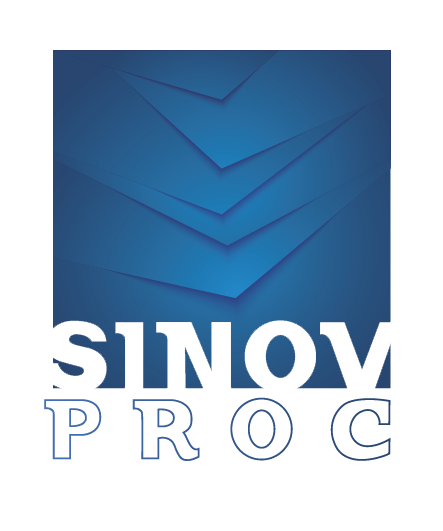WORKPACKAGES
| WP 1 - Literature review: State of the art | ||
| This task aims to ensure an
initial theoretical background for the research. It is
essential to ensure that all the team members will be up
to date to the concepts involved in the research project.
This task will also be particularly useful for the
integration of young researchers and post-graduation
students on the research, allowing them to understand the
problem and possible approaches. Therefore, a
multidisciplinary literature review will be undertaken
having as a starting point the latest developments linking
university-community engagement, social innovation,
societal development, innovation process, performance
measurement, metrics, social value creation, and impact
and outcome measurement. It will be mainly conducted using
scientific papers, books, websites and public reports. At the end of this task, it is expected a comprehensive report describing the state of the art regarding the social innovation process, university-community engagement, and social innovation impact assessment. The literature review will, also, exemplify social innovation with a series of examples that provide a means to gain an insight into the overarching process of how social innovation takes place. |
||
| WP 2 - Conceptual framework model for social innovation process | ||
| The objective of this task is
to produce a heuristic model to understand the university
involvement in social innovation using a systematic and
multidisciplinary approach. This will be done in two
steps. Firstly, a conceptual framework heuristic to
understand the process of social innovation will be
developed. Secondly, we direct our attention to how
universities can contribute to the different stages of the
social innovation process. The expected results are: |
||
| • | a conceptual heuristic framework for the process of social innovation; | |
| • | a comprehensive typology of different universities’ resources that could become involved in different stages of that process; | |
| • | presentation of the conceptual framework in an international conference. | |
| • | one publication in international scientific journals. | |
| WP 3 - Methodological framework for social innovation metrics | ||
| A screening of innovation
metrics found in the theoretical and empirical literature
will be undertaken with the objective to learn from
existing metrics and to develop a methodological framework
best suited to take into account the specificities of
social innovation initiatives or practices. The expected results are: |
||
| • | a methodological framework to identify metrics that allow to evaluate the impact of social innovation initiatives or projects; | |
| • | a comprehensive typology of indicator categories able to be adapted to different types of social innovation; | |
| • | presentation of the methodological framework in an international conference. | |
| • | one publication in international scientific journals. | |
| WP 4 - Identification and selection of case studies and field work | ||
| The aim of this task is to
identify an interesting number of case studies in order to
validate: (i) the conceptual heuristic framework model
developed; and (ii) the methodological framework for
social innovation metrics. Those case studies will be
those where there is a social learning community and where
the members of that platform are willing to engage in the
research process. The main methods of data collection
foreseen to be used are questionnaires, focus group
discussion, and in-depth interviews to university related
individuals as well as other community or regional actors
which might have either benefited from or contributed to
the social innovation project development and
implementation. The expected results are: |
||
| • | selection of a small number of case studies to test and contribute to the validation of the conceptual framework process model and the methodological framework for social innovation metrics developed in the previous tasks. | |
| • | a database with some examples of social innovations and information regarding universities’ involvement in social innovation processes. | |
| • | a field work report for each of the case studies selected. | |
| • | presentation of the main findings of those case studies in an international conference. | |
| • | one publication in international scientific journals. | |
| WP 5 - Analysis and reporting | ||
| The
objective of this task is to make an in-depth analysis of
the information and data gathered in the previous task,
and the corresponding reporting of the case studies
selected in the previous task presenting the main findings
achieved. The analysis will be framed in the context of:
(i) the conceptual heuristics framework developed in the
second task (and taking into account how universities can
engage with communities to diffuse and spread the benefits
of social innovation initiatives); and (ii) the
methodological framework for social innovation metrics
developed in the third task. The expected results of this task are: |
||
| • | Case studies reports describing the main findings and conclusions. | |
| • | One analytical overview report. | |
| • | Two Master dissertations. | |
| • | Presentation of the main findings of the overview report in an international conference | |
| • | One publication in international scientific journals. | |
| WP 6 - Academic dissemination | ||
|
The
basis for this task is to take the various project
materials produced, including the working paper, the case
study reports and the final analytic report, and
disseminate them in the academic sphere by producing three
conference papers for which publication is then sought in
relevant internationally-peer reviewed outlets. This
therefore involves identifying relevant conferences and
outlets, presenting papers to those conferences, and then
on that basis, seeking further publication of the
resources. The research team plans to organise a Final Seminar aiming to join, in an open debate, the scientific community, policymakers and practitioners interested in issues regarding social innovation, universities’ third mission, and 21st century grand challenges. |
||
| WP 7 - User engagement | ||
| The main objective of this task is to involve users of social innovation outcomes on the process of social innovation and social knowledge. It can be argued that user engagement, stakeholder involvement, and policy-makers’ commitment in the process of social innovation is essential to achieve societal impact of social innovation. It is important to understand why, when and how users are engaged within the process of social innovation, which implies a higher degree of integration between researchers and users by increasing the extent of user engagement in research. In this context, we adopted a co-creation approach to maximise the outcome of the research project. Therefore, this is an on-going task through all project development. | ||




